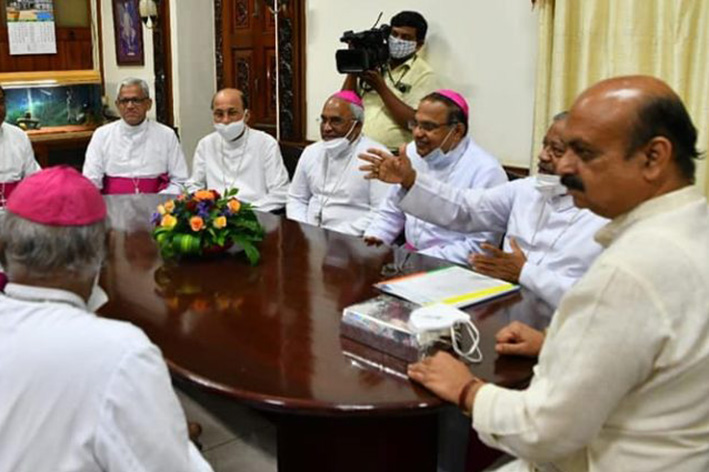The state government of Karnataka in India has passed an ordinance to abolish religious conversions despite opposition from the Catholic Church and other faith-based groups.
Governor Thaawar Chand Gehlot signed the ordinance on May 17, a day after a Catholic delegation headed by Archbishop Peter Machado of Bangalore issued a memorandum to raise opposition.
Father Faustine Lobo, spokesperson of the Regional Bishops’ Council in Karnataka, said the signing of the ordinance is a “dark day for democracy” in the state.
“We are really saddened about this ordinance,” he told Matters India.
“It is not about conversion or no conversion, it is all about the government ignoring the contributions by the Christian community to the people of Karnataka,” said the priest.
Father Lobo said a delegation of Catholic bishops submitted a memorandum signed by Archbishop Machado to the governor on May 16. The governor reportedly “promised to study the ordinance before considering it for signing.”
“But he signed it today,” Father Lobo told journalists on May 17.
With the governor’s approval, the ruling Bharatiya Janata Party is expected to implement the controversial Karnataka Protection of Right to Freedom of Religion Bill, popularly known as the anti-conversion bill.
The bill was earlier passed by the state legislative assembly, but it was yet to be presented in the legislative council, where the ruling party is one seat short of majority.
According to the new law, any converted person, his parents, brother, sister or any other person who is related to him by blood, marriage, or adoption or associated in any form, or a colleague could lodge a complaint of conversion that contravenes the law provisions.
The offense is made to be non-bailable and cognizable offense.







